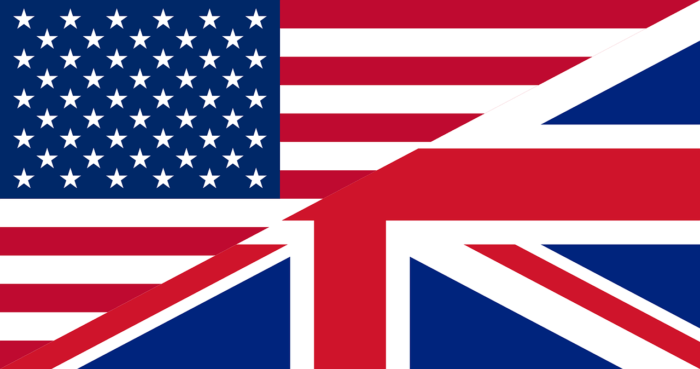The Unclear Status of UK-US Trade

In the exclusive interview with BBC, former US trade chief, Michael Froman, spoke up about the realistic expectations that the UK should have. Froman did not shy away from declaring that the UK should not, in any manner, expect that the sort of ”special relationship” or ”special treatment” it has maintained with the US will automatically result in enjoying the favorable trading terms.
By insisting on the US not willing to compromise its own economic interests, Froman’s commentary did come off as the possible insinuation for UK exports to be imposed new tariffs on. This includes Scottish single malt whiskey as well as Scottish cashmere which are bound to come into force by Friday.
There has been nearly a 15-year-long trade dispute between two plane makers, Airbus and Boeing. It seems that this will have a direct influence on tariff imposition that is planned to be conducted upon a range of products, only a few of which are whiskey and cashmere. Thus, US customers will have to deal with a 25% tariff on some of the foreign goodies.
The fact of the matter is that the member states of the EU, specifically the UK, Germany, France, and Spain were provided subsidies of the illegal nature with regards to Airbus. Henceforth, The World Trade Organisation granted US the right to impose $7.5bn in tariffs, in the form of taxes, on EU products.
Scotland is Worried
As it follows, Scottish business dealers seem to be upset. They claim that the punishments are way over the top, but Froman, who had worked as the United States’ trade representative under Obama’s regime, once again points out the special treatment should not be expected from the UK’s side at all. ”We will not be sacrificing our own economic interests in favor of a trade negotiation or a trade dispute, and this will remain so even in case of having a special relationship. The said will be applicable for future trade agreements as well” – claims Froman.
Scotland will seemingly suffer the most from yet-to-be-imposed tariffs, since the rival products from the EU, for instance, cashmere from Italy or a single malt from the Republic of Ireland, are not facing any sanctions of this sort whatsoever.
As Patricia Dillon from Speyside distillery near Aviemore presumes the company is being treated unfairly and dragged into a dispute which is not of its making. The company would also have to increase the export of the tariff-free, 60000 liters of whiskey it currently exports to the US. Patricia claims that reality feels like a huge inconvenience that has been imposed onto the company out of nowhere and has little to nothing to do with them at all. In addition, it does not at all seem plausible for them to effectively cope with the tariff as huge as that of 25%, and thus, reconsidering positions in the US market will also be necessary.
Future growth plans will also be negatively affected for cashmere makers at Johnston’s of Elgin where the chief executive Simon Cotton, with an indeed unfitted last name, expresses his concerns at the massive disadvantage that the company will have to face, especially in relation to their major Italian rivals. In his words, the entire company plans will have to be downscaled since the consumers in the US are going to making their purchases at higher prices. Consequentially, the export will be lessened, which will in turn decrease growth and jeopardize the overall stability of the production.
While companies across the ocean are busy worrying about their future well-being, Froman does not seem to be wanting to hold back in any way. Rather, he keeps on insisting that the UK is not, in fact, targeted unfairly at all. He claims that tariffs will be introduced to German, French, and Spanish companies as well.
General Assessment
The illustrations of the dispute, however, paint a different picture in that as a general rule, trade is a fairly complicated issue. It is all about finding the very golden mean between domestic politics and economics and international business matters. In such a meticulous practice, it should not be a surprise of any sort that not every sector will be left satisfied. The detailed and delicate balance of trade requires both sides to let go of something in exchange for gaining something else.
If we wish to provide a more fundamental evaluation, the words of Mr. Froman are going to come in handy. As he said, the UK will inevitably have to make some difficult choices, moreover, if it is serious about establishing a long-lasting trading deal with the US. After Brexit, Froman claims, the UK will have to face the decision-making hurdle of whether or not it wants the close alignment with the EU and its regulations, or opening-up more to the US market and its standards. Since the EU is still the UK’s biggest financial partner, the choice will certainly be a hard one to make.
The UK government reported to the BBC that stabilizing and securing a trade deal with the US is among its top priorities. But just how top are those priorities? Or can they compete with the willingness to keep things good and well with the EU? These questions are not as easy to answer as they may appear at prima facie and the reason for this is an almost inherent incompatibility with which maintaining stable trade deals with both, the US and the EU is accompanied.
The subject of up-coming tariffs was with Donald Trump in the duration of last week when the prime minister was insisting on rethinking the decisions. As for our beloved Scottish companies, for now, they can only hope for a miraculous persuasion to happen and the US to allow Scottish business a last-minute reprieve.


























Comments (0 comment(s))